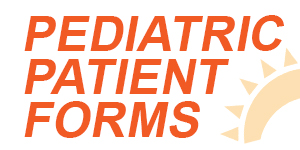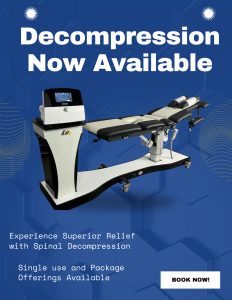Have you ever experienced a sudden, sharp pain that seems to radiate through a specific area of your body? Or perhaps you’ve felt an unexplained tingling or numbness in your arm or leg?
Well, these sensations could be indicators of a pinched nerve—a common condition that occurs when too much pressure is applied to a nerve by surrounding tissues.
While a pinched nerve can happen anywhere in your body, it’s most common in the neck, lower back, and wrists. And recognizing the signs early can lead to faster treatment and relief. So, are you experiencing a pinched nerve? Below, we take a look at the top signs and how chiropractic care can help!
1. Radiating Pain
Pain that radiates along the nerve’s path is one of the most common signs of a pinched nerve. For example, if you have a pinched nerve in your lower back, you might feel pain that travels down your leg, a condition known as sciatica. This pain can range from a dull ache to a sharp, burning sensation.
2. Numbness or Decreased Sensation
A pinched nerve can interfere with the nerve’s ability to transmit sensory information, leading to numbness or decreased sensation in the affected area. You might notice that part of your arm, leg, or another body part feels numb or has less sensitivity to touch than usual.
Often described as a “pins and needles” feeling, the compression of the nerve may also cause tingling. For instance, a pinched nerve in the wrist (carpal tunnel syndrome) might cause tingling in the hand and fingers.
3. Muscle Weakness
When a nerve is compressed, it can affect its ability to control the muscles it serves. This can result in muscle weakness in the affected area. You might notice difficulty gripping objects, reduced arm or leg strength, or even a tendency to drop things if you have a pinched nerve in your neck or arm.
4. Sharp, Burning Pain
In some cases, a pinched nerve can cause a sharp, burning pain in the affected area. This pain might be constant or come and go and can intensify with specific movements or positions, which leads us right into our next symptom!
5. Increased Pain with Specific Movements
You may notice that certain movements or positions exacerbate your symptoms. For example, turning your head in a particular direction might increase neck pain if you have a pinched nerve in your cervical spine. Identifying these triggers can help diagnose and treat the condition. Thus, if this sound familiar, make sure you bring this up with your doctor or chiropractor!
6. Symptoms that Persist or Worsen Over Time
While some minor nerve compressions may resolve on their own, persistent or worsening symptoms are a sign that you should seek medical attention. If you’ve been experiencing symptoms for several days or weeks without improvement, it’s time to consult a healthcare professional, such as your local Parker chiropractor.
7. Loss of Bladder or Bowel Control
In rare and severe cases, a pinched nerve in the lower back can lead to a condition called cauda equina syndrome, which may cause loss of bladder or bowel control. This is a medical emergency and requires immediate attention.
Can Chiropractic Care Help?
Chiropractic care offers non-invasive, drug-free treatments that can help alleviate pressure on the affected nerve, reduce inflammation, and restore proper function. With Awaken Chiropractic, our team is here to help you get back to your regular activities pain-free! Pave your road toward recovery and book your appointment today!







